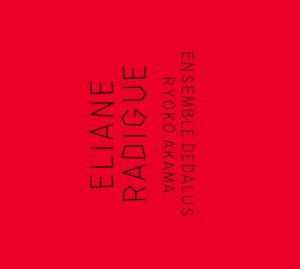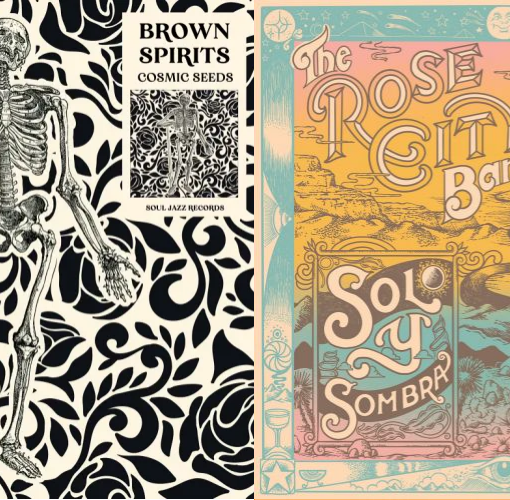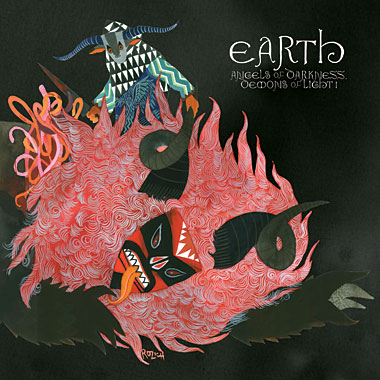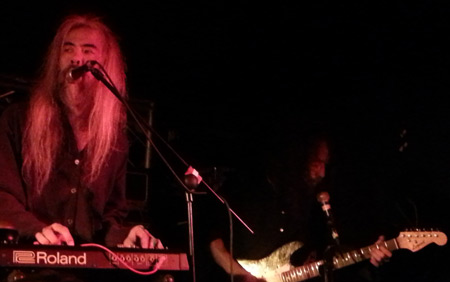 Sincerely hoping that Mme Radigue is not insulted by the comparison, she seems, in 2023, analogous to some kind of magical musical cœlacanthe, a living, breathing example of a distant past which has somehow survived against the odds into the modern era and which one might, just might, be lucky enough to still glimpse occasionally.
Sincerely hoping that Mme Radigue is not insulted by the comparison, she seems, in 2023, analogous to some kind of magical musical cœlacanthe, a living, breathing example of a distant past which has somehow survived against the odds into the modern era and which one might, just might, be lucky enough to still glimpse occasionally.
Now in her early nineties, ÉlianeRadigue started her career way back in the 1950s, studying as part of the Groupe de Recherche de Musique Concrète (GRMC) in Paris, helmed by those frolicsome twin Pierres, Schaeffer and Henry, from whom she received a firm grounding in electroacoustic music and musique concrète. Gradually, however, Radigue’s interest in electronic music began to take her away from this orbit, and off onto a trajectory of her own, one which she has been following now for some five or six decades.
From around 1967 onwards, Radigue’s modus operandi was instead to use tape and analogue synthesisers as vehicles to explore a slow ‘unfolding’ of sound more akin as she saw it to the explorations of contemporary New York minimalists such as La Monte Young than to the dense audio collisions of her former mentors. Thereafter, throughout the 1970s, Radigue mixed Buchlas and Buddhism, charting a course via a number of critically lauded pieces, culminating in her last electronic work, 2000’s prize-winning L’Ile Re-sonante.Feeling at that point that she had, in her own words “fully realized what she had always sought to accomplish in her electronic works”, Radigue began a change of direction towards more acoustic composition, with 2011 also seeing the start of her epic Occam cycle, Occam I being composed for the Welsh harpist Rhodri Davies. Further Occams – the cycle now totals around sixty pieces – have been specifically composed for huge spectrum of instruments including tuba, cello, violin, clarinet and even birbynė, a type of Lithuanian pipe.
Dating from 2014-2018, the two Occams collected here, XX and Hepta I, are for analogue synthesiser (breaking her own rules there) and ensemble (guitar, viola, trombone, trumpet, violin, bassoon, and cello). Recorded respectively by Ryoko Akama, a Japanese-Korean artist living in working in Huddersfield (at whose acclaimed International Music Festival the piece was premiered) and Ensemble Dedalus, a contemporary music group based in Toulouse, the counterpoint of the two very different Occams nevertheless highlights agreeably the consistencies present throughout the cycle, irrespective of the instrument or even type of instrument: the gradualism, the elimination of everything extraneous and unnecessary, the intense feeling of focus and concentration, the sense of exploration undimmed by the years. At just over thirty minutes, XX, indeed ‘unfolds’, its stately pace and reverberant drones rising and falling like the tides of a river. It could easily be slipped onto, say, Coil’s Time Machines with any join scarcely perceptible. Hepta I, premiered in Salzburg at the end of 2018, is a fraction shorter, its constantly shifting harmonics ebbing and flowing, and the end result utterly hypnotic. This could be sound of a star forming in the hot gases of deep space, or perhaps the remarkable liquid flow of breakdown and reformation that takes place inside butterfly pupae.At the risk of resorting to ludicrous 1970s cliches, in recorded form these really are pieces best heard through headphones. Despite the lack of urgency, this is not ambient music; rather it is meditative, the music of awareness, demanding an investment of time and attention. Every moment is a building block towards the whole, and if you can carve out the necessary minutes, it will repay that outlay many times over.
-David Solomons-




